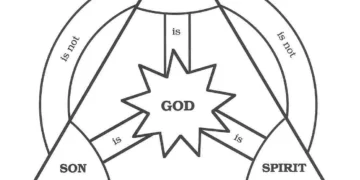In a dimly lit room, a young man sighs heavily as he scrolls through online forums filled with grievances and bitterness. His frustration stemming from a lack of romantic or sexual relationships has led him to identify as an involuntary celibate – or ‘incel’ for short. This vibrant online community has gained attention for its often controversial viewpoints, but beneath the surface lies a group of individuals struggling with deep-seated emotional pain. This article aims to shed light on the need for empowering and providing guidance to incels, focusing on supporting their emotional well-being.
Understanding the Incel Phenomenon
To begin addressing the emotional well-being of incels, it is essential to comprehend the origins and core beliefs of this subculture. Analyzing societal factors such as loneliness, social alienation, and the commodification of intimacy provides valuable insights into the mindsets of incels. Recognizing their perspectives without endorsing violent rhetoric or misogyny is critical in developing effective support mechanisms.
Recognizing Emotional Struggles
Emotional well-being is at the heart of any successful support system. Incels often experience feelings of rejection, inadequacy, and hopelessness. By acknowledging their emotional struggles, we can engage in empathetic conversations and dispel harmful stereotypes. Encouraging self-reflection and emotional expression can help incels develop healthier coping mechanisms and a stronger sense of self-esteem.
The Importance of Therapy
Incel communities predominantly exist online, where hatred often festers due to the lack of constructive support. To address this, access to mental health resources and therapy is paramount. By emphasizing therapy as a positive outlet, we can encourage incels to seek professional help and equip them with tools to navigate their emotions more effectively. Cultivating a safe environment for their concerns can contribute to personal growth and nuanced self-reflection.
Promoting Positive Role Models
A crucial step toward empowering incels is highlighting positive role models within the community. Shining a light on individuals who have managed to overcome their involuntary celibacy by adopting healthier mindsets and working towards personal goals can serve as inspiration. Promoting narratives that focus on personal development, fostering empathy, and leveraging community support helps break the cycle of negativity.
Encouraging Healthy Social Connections
Incel culture often thrives on isolation and distorted perspectives of social dynamics. Encouraging incels to engage in healthy social connections is vital for improving emotional well-being. Promoting community involvement, facilitating social events, and fostering inclusion improves their chances of forming meaningful relationships while also challenging their existing biases and preconceptions.
Emotional support
While the incel phenomenon may evoke strong emotions and controversies, addressing the emotional well-being of incels is an essential aspect of supporting their personal growth. By recognizing their struggles, offering therapy options, promoting positive role models, and encouraging healthy social connections, we can empower incels to break free from the cycle of bitterness and negativity. A comprehensive approach that combines empathy, education, and access to mental health resources is crucial in fostering the emotional well-being of incels and helping them thrive in a more inclusive society.















































































